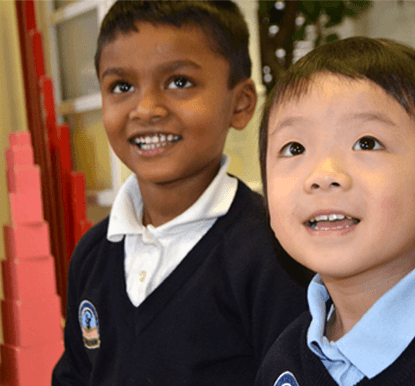MONTESSORI PHILOSOPHY
The foundation of Maria Montessori’s approach is respect for the child as a worthy individual, occupied with the task of developing himself into a mature human adult. She observed children’s need for independence, for self-confidence as adequate people, for control over their own impulses and emotions and a natural curiosity and desire to learn.
She observed in young children a phenomenon she called the “absorbent mind”. Children can absorb information from their surroundings without any conscious, tedious effort. Learning does not have to be forced upon them. If the environment is orderly and readily accessible and if the children are free to work through their own cycles of activity at their own pace, they can learn to read, write and calculate in the same natural way that they learned to walk and talk.

It is now commonly accepted that from conception to age 4 the individual develops 50% of his/her mature intelligence; from ages 4 to 8 another 30%. This indicates the rapid growth of intelligence in the early years and the importance of the early environment on this development. It is also true that children mature at very different rates and their periods of readiness for academic subjects vary greatly. Montessori observed that a young child has periods of intense fascination for developing various skills such as climbing stairs or counting. During these sensitive periods it is easier for the child to acquire particular skills than at any other time in his/her life. The Montessori classroom allows each child freedom to select activities, which correspond to his or her own periods of interest and readiness.
By answering a child’s needs as they arise, some children in a Montessori class begin to read and calculate at a very early age. Parents should understand that a Montessori school is neither a babysitting service nor a playschool. It is a unique learning designed to take advantage of the child’s sensitive years of development between three and six years.


